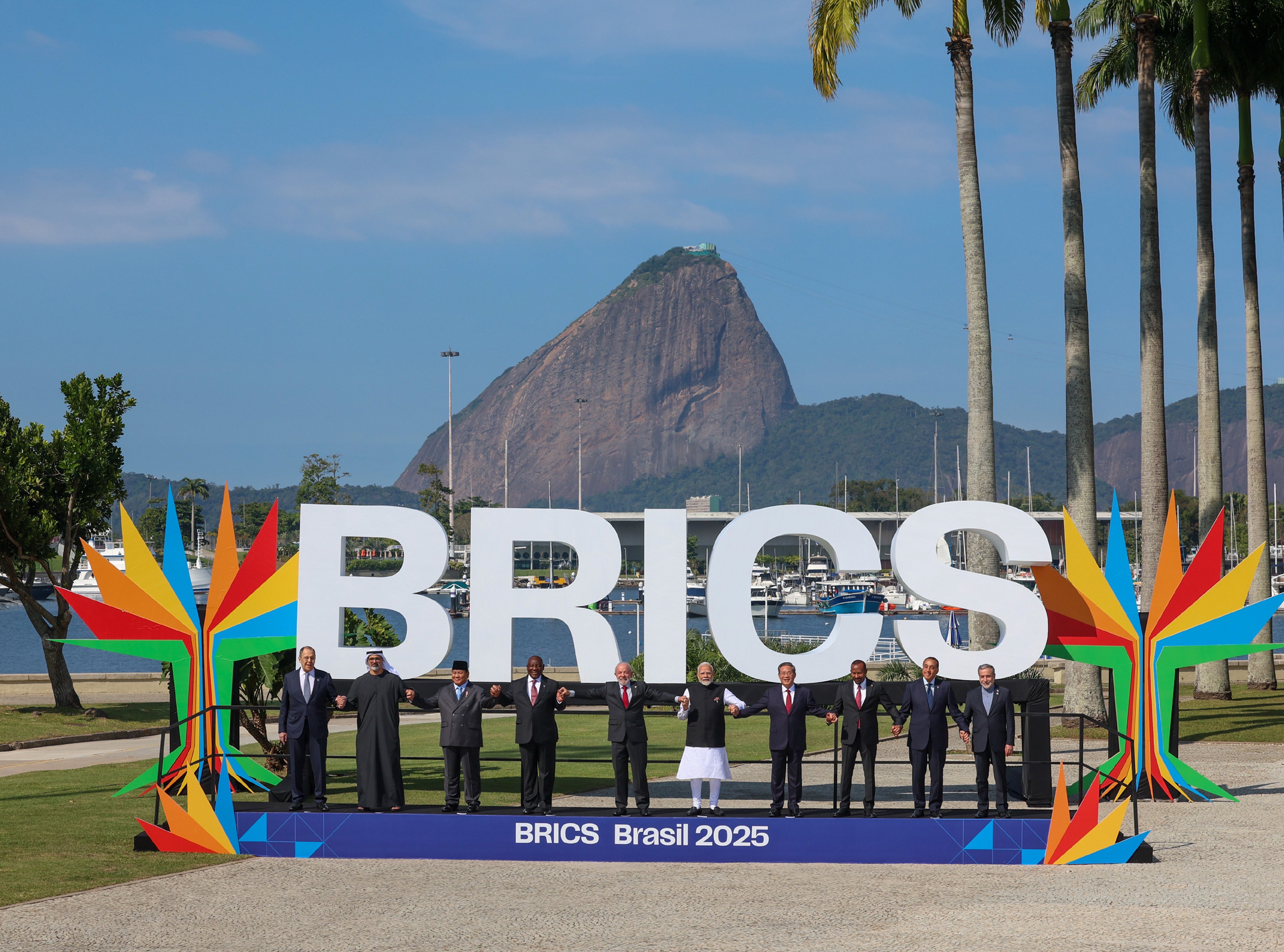
BRICS Nations ‘Condemn and Reject’ Europe’s Carbon-Based Import Duties
A Critical Analysis for CLAT 2026 Aspirants
Published by CLAT Gurukul | Curated for Current Affairs 2026 Section
Introduction
In a bold diplomatic statement, BRICS nations—Brazil, Russia, India, China, and South Africa—have collectively condemned and rejected the European Union’s (EU) Carbon Border Adjustment Mechanism (CBAM) and other similar carbon-related import duties. This marks the strongest collective resistance yet from the Global South against what is perceived as an emerging trend of environmental protectionism by developed countries, particularly in Europe.
The statement was issued at the conclusion of the 17th Annual BRICS Summit held in Brazil on July 8, 2025. The declaration was not merely symbolic; it signaled growing unity among major developing economies in opposing unilateral trade measures imposed under the pretext of climate change that could potentially undermine their economic growth and industrial competitiveness.
This development is critical for CLAT Current Affairs 2026 because it intersects global governance, environmental law, international trade, and diplomacy—all areas frequently tested in the CLAT PG and UG Current Affairs sections. Students preparing with the best online coaching for CLAT must understand this topic both factually and conceptually.
Why in News?
- The 17th BRICS Summit, hosted in Brazil in July 2025, issued a strongly-worded joint declaration rejecting Europe’s CBAM and similar measures.
- The BRICS countries claimed these measures are discriminatory, unilateral, and detrimental to the Global South’s economic and environmental priorities.
- This is being viewed as a strategic pivot in international climate negotiations and trade diplomacy.
- The declaration emphasized that such mechanisms are “unfair,” “unilateral,” and “protectionist” in nature.
Point-Wise Summary of the Key Developments
- CBAM Rejection by BRICS
The BRICS nations issued a unified statement condemning and rejecting the European Union’s Carbon Border Adjustment Mechanism (CBAM). - Nature of CBAM
CBAM is an import duty imposed by the EU on goods produced in countries with higher carbon emissions, especially those without stringent environmental laws. - Purpose of CBAM According to EU
- Claimed to check “carbon leakage”, i.e., the movement of industries from high-regulation (EU) to low-regulation (developing) countries.
- Intended to incentivize cleaner production methods globally.
- BRICS’ Criticism
BRICS nations call this a “discriminatory and unilateral” measure:- It undermines WTO norms.
- Violates sovereign trade rights.
- Affects developmental priorities of poorer nations.
- India and China’s Role
- India and China played a pivotal role in criticizing CBAM.
- Labelled it as an “unfair barrier” and neo-protectionist in nature.
- Impact on Trade
Developing countries like India could face higher duties on steel, cement, aluminium, etc., making exports less competitive. - New Diplomatic Platform
The declaration resulted from a two-day BRICS summit and a new climate finance framework initiated under Russia’s prior BRICS chairmanship. - Climate Finance Declaration
The BRICS group emphasized climate finance, stating that such tariffs were against the spirit of climate equity. - Shift in Climate Diplomacy
The statement signals a collective shift from being policy recipients to policy influencers in global climate negotiations. - Strategic Messaging to EU and Global North
The BRICS declaration is a diplomatic counter-narrative to the West’s environmental leadership claims.
Notes and Explanation of Key Terms
- CBAM – Carbon Border Adjustment Mechanism
A tax or duty levied by the EU on imports from countries with less strict carbon regulations.
Objective: Avoid carbon leakage and promote greener production globally.
Criticism: It is often viewed as a form of green protectionism.
- Carbon Leakage
When companies move production to countries with less stringent emission norms to avoid carbon taxes in their home countries.
- Climate Finance
Refers to financial flows from developed to developing nations to help them transition to clean energy, adapt to climate change, and meet emission targets.
- Unilateral Trade Measures
Trade rules or duties imposed by one country or bloc (e.g., the EU) without multilateral consensus (e.g., through WTO).
- BRICS
An international bloc of major emerging economies—Brazil, Russia, India, China, South Africa—known for opposing Western-led institutions.
- Environmental Protectionism
A form of protectionist trade policy justified using environmental concerns, often used by developed nations.
Geopolitical Significance
- The move is not just economic but strategic—asserting the Global South’s voice in global governance.
- Reflects China and India’s growing influence in shaping global climate discourse.
- Marks a new phase in Global North vs. Global South tensions in climate action strategies.
Relevance for CLAT 2026
This topic integrates several CLAT-relevant domains:
- International Environmental Law (CBAM, carbon leakage, climate finance)
- WTO and International Trade Law
- Constitutional and International Diplomacy Principles
- Current Affairs 2026 and Economic Policy Trends
- Multilateralism vs. Unilateralism
Sample MCQ for CLAT Practice
Question:
Which of the following best defines the purpose of the European Union’s CBAM policy?
- To promote tourism in Europe
B. To tax oil-producing countries
C. To prevent carbon leakage and promote cleaner production
D. To fund EU political campaigns
Correct Answer: C
Explanation: CBAM aims to reduce carbon leakage and incentivize global carbon efficiency.
Strategic Takeaways for CLAT Aspirants
- Understand how climate concerns are used to justify trade measures.
- Know the BRICS position on Western climate leadership.
- Recognize the legal implications of unilateral tariffs under WTO law.
- Be able to distinguish between environmental policy and disguised protectionism.
Conclusion
This BRICS declaration highlights a growing power shift in international trade and environmental diplomacy. For students preparing with the best online coaching for CLAT, this topic is a rich resource for comprehension passages, current affairs MCQs, legal reasoning questions, and even essay writing in Mains-type exams. Keep this event noted under CLAT Current Affairs 2026, and expect related themes in both objective and analytical questions.




